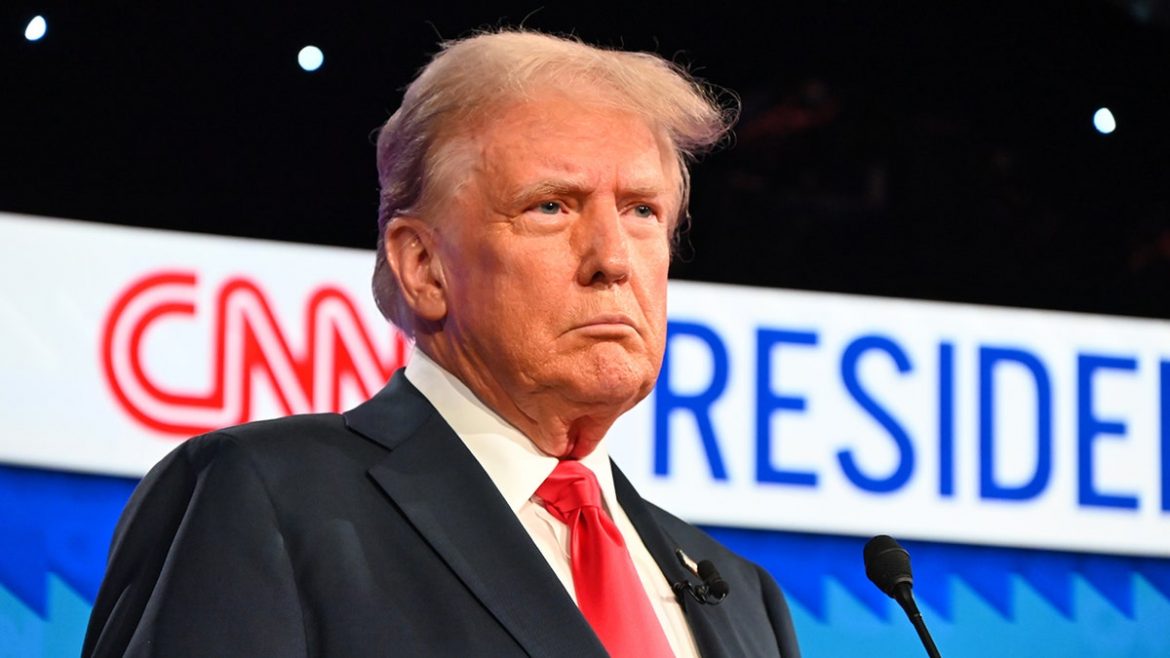The Supreme Court issued a landmark ruling Monday in Trump v. United States, concluding that a president has substantial immunity from prosecution for official acts committed while in office, but not for unofficial acts.
The decision clarifies whether a former president can be criminally charged by prosecutors for acts committed while in office. Former President Trump brought the question before the court after Special Counsel Jack Smith accused him of various crimes related to Trump’s attempt to challenge the results of the 2020 presidential election.
Smith has charged Trump following a months-long investigation into whether the former president was involved in the Jan. 6, 2021, Capitol riot and interfered in the 2020 election result. Trump has pleaded not guilty to all charges and argued he should be immune from prosecution from official acts done as president of the U.S.
Here are 5 key lines from the ruling:
Chief Justice John Roberts says ‘The president enjoys no immunity for his unofficial acts’
In a 6-3 decision in the case, the high court sent the matter back down to a lower court, as the justices did not apply the ruling to whether or not former President Trump is immune from prosecution regarding actions related to efforts to overturn the results of the 2020 election.
Roberts, writing for the majority, said ‘The President enjoys no immunity for his unofficial acts, and not everything the President does is official.
‘The President is not above the law,’ Roberts continued. ‘But Congress may not criminalize the President’s conduct in carrying out the responsibilities of the Executive Branch under the Constitution. And the system of separated powers designed by the Framers has always demanded an energetic, independent Executive.
‘The President therefore may not be prosecuted for exercising his core constitutional powers, and he is entitled, at a minimum, to a presumptive immunity from prosecution for all his official acts,’ he added. ‘That immunity applies equally to all occupants of the Oval Office, regardless of politics, policy, or party.’
Justice Sonia Sotomayor argues the ‘president is now a king above the law’
Associate Justice Sonia Sotomayor, joined by Justices Elena Kagan and Ketanji Brown Jackson, wrote in a dissenting opinion that ‘in every use of official power, the President is now a king above the law.’
‘Let the President violate the law, let him exploit the trappings of his office for personal gain, let him use his official power for evil ends. Because if he knew that he may one day face liability for breaking the law, he might not be as bold and fearless as we would like him to be,’ she wrote. ‘That is the majority’s message today.
‘Even if these nightmare scenarios never play out, and I pray they never do, the damage has been done,’ Sotomayor added. ‘The relationship between the President and the people he serves has shifted irrevocably.’
Roberts responds to dissenting opinions, says president is ‘unlike anyone else’
Roberts responded to the liberal justices: ‘Coming up short on reasoning, the dissents repeatedly level variations of the accusation that the Court has rendered the President ‘above the law.’’
‘Like everyone else, the President is subject to prosecution in his unofficial capacity. But unlike anyone else, the President is a branch of government, and the Constitution vests in him sweeping powers and duties. Accounting for that reality — and ensuring that the President may exercise those powers forcefully, as the Framers anticipated he would — does not place him above the law; it preserves the basic structure of the Constitution from which that law derives.’
‘The dissents’ positions in the end boil down to ignoring the Constitution’s separation of powers and the Court’s precedent and instead fear mongering on the basis of extreme hypotheticals about a future where the President ‘feels empowered to violate federal criminal law,’ he wrote.
Justice Clarence Thomas says ‘president’s immunity from prosecution for his official acts is the law’
Thomas, who was among the majority, wrote in the decision that ‘in this case, there has been much discussion about ensuring that a President ‘is not above the law.’
‘But, as the Court explains, the President’s immunity from prosecution for his official acts is the law,’ he continued. ‘The Constitution provides for ‘an energetic executive,’ because such an Executive is ‘essential to… the security of liberty.’’
‘Respecting the protections that the Constitution provides for the Office of the Presidency secures liberty. In that same vein, the Constitution also secures liberty by separating the powers to create and fill offices,’ Thomas also said. ‘And, there are serious questions whether the Attorney General has violated that structure by creating an office of the Special Counsel that has not been established by law.’
Justice Ketanji Brown Jackson says majority is ‘discarding of a model of accountability for criminal acts’
In her dissenting opinion, Justice Ketanji Brown Jackson wrote that she ‘simply cannot abide the majority’s senseless discarding of a model of accountability for criminal acts that treats every citizen of this country as being equally subject to the law — as the Rule of Law requires.
‘That core principle has long prevented our Nation from devolving into despotism. Yet the Court now opts to let down the guardrails of the law for one extremely powerful category of citizen: any future President who has the will to flout Congress’s established boundaries,’ she added.
Fox News’ Brooke Singman contributed to this report.
